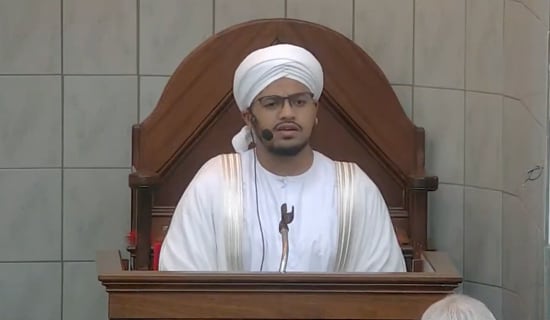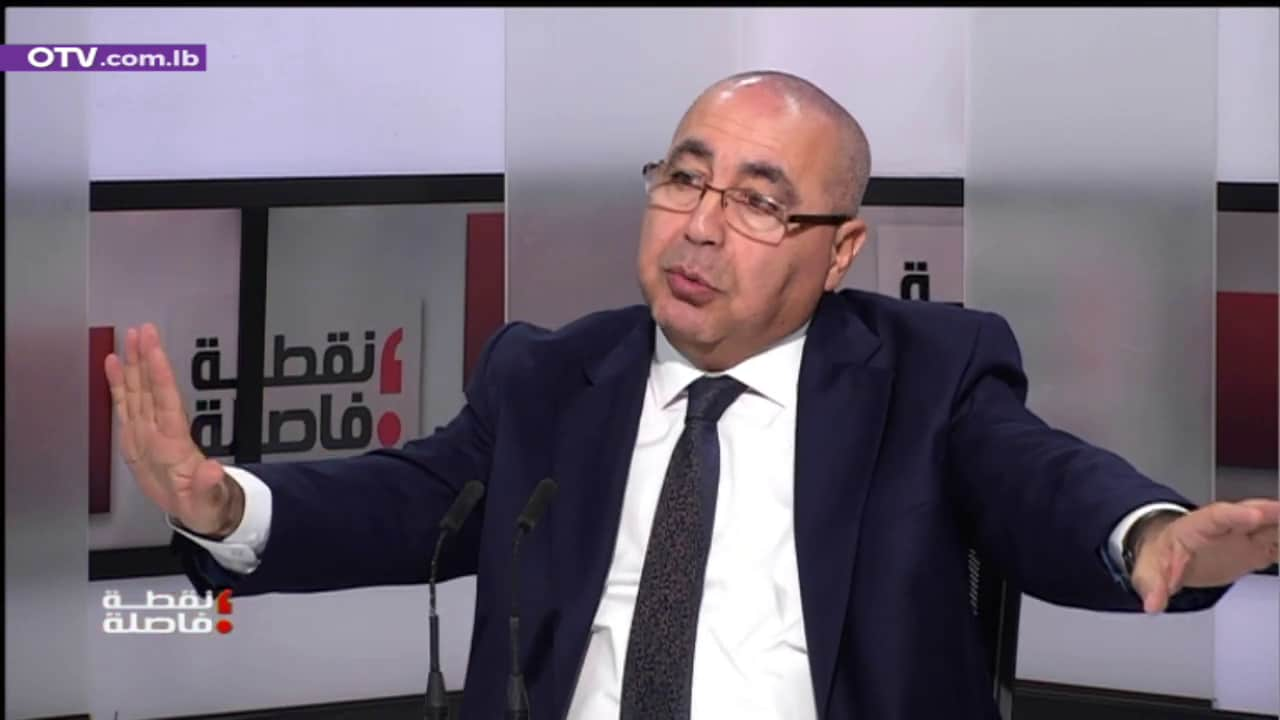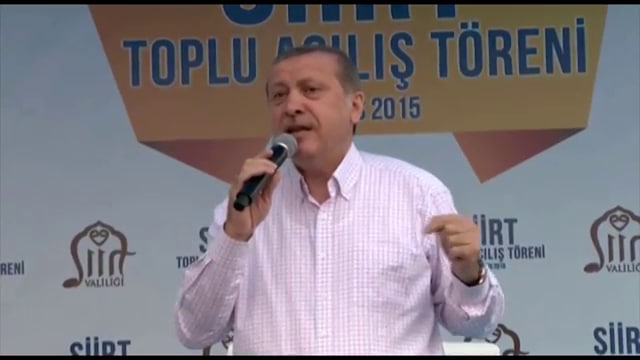
Palestinian President Mahmoud Abbas said in a recent TV interview: "I will not accept and will not allow an armed Intifada." Speaking on the Kuwaiti Scope TV channel, Abbas said: "I am against military operations, and I speak loud and clear against this. I insist upon not allowing anyone to shoot." On the Arab Spring, Abbas said that "what afflicted the Arabs was a plan called the New Middle East and the Constructive Anarchy," with the goal of partitioning the Arab world. The interview aired on March 13, 2016.
Following are excerpts
Mahmoud Abbas: In 1988, the Palestinian National Council convened in Algeria, and made a historic resolution. This was a courageous resolution to accept the 1967 borders, and to have the state of Palestine within the 1967 borders. This meant that this land would be liberated, and we would build on it - thus the text read - the state of Palestine. This refers to the West Bank, Gaza, and East Jerusalem - because East Jerusalem has been an occupied land since 1967. Since 1988 and to this day, we have been demanding this. We should get our state in the 1967 borders with Jerusalem as its capital. I always say that there can be no solution without Jerusalem.
[…]
If we believe, or delude ourselves, that we will be liberated tomorrow -this will not happen tomorrow or even the day after tomorrow. But perhaps it will happen later on, on condition that this state is built one block at a time, brick by brick. We are working on it brick by brick. We have patience, steadfastness, and hope.
[…]
The struggle is not conducted through military fighting. We tried this, but in 1988 we said that we want to go for peace. And we did. In 1993, we signed the agreement with Israel. Then there were conflicts and clashes with the Israelis. Let me give you two examples. The first is that of the (1987-1993) children's Intifada, in which weapons were not used. The impact of this Intifada on the world was a million times greater than when weapons were used. That is one example. But in 2000-2005, we reverted to weapons. Our country was destroyed, and we achieved nothing. On the contrary, Israel won the sympathy of the world. Why? If you fight it, it has the right to fight you back. I don't want to fight them, and that's why we are now carrying out a popular uprising.
Interviewer: Which is?
Mahmoud Abbas: Demonstrations and strikes everywhere, under the slogan: "We want to end the occupation."
[…]
I am against military operations, and I speak loud and clear against this. I insist upon not allowing anyone to shoot. I say this loud and clear. There were three wars against Gaza: in 2008, 2012, and 2014. These were real wars, with missiles and everything... I said that we were supporting our brothers with demonstrations and political activity. Instead of waging war, I will invest efforts in stopping this war against my people.
[…]
I struggle politically in order to achieve my goal, and it has been proven to me that an armed Intifada is no good. I am not ashamed to say that I will not accept and will not allow an armed Intifada.
Interviewer: You will not allow it?
Mahmoud Abbas: I will not allow it.
[…]
I will not allow it. This is my opinion, and the people support me.
Interviewer: You have support?
Mahmoud Abbas: Yes, because the people have experienced the children's Intifada, which was excellent, have experienced the armed Intifada, which destroyed us, and have experienced political action. In ten years of political action, we have managed to become a player in the world. Instead of being outcasts, we have become a player.
[…]
How many countries in the world are under occupation?
Interviewer: There shouldn't be any left.
Mahmoud Abbas: No, there are many. America occupies dozens of countries, but nobody knows this.
Interviewer: Mr. President, when will we see an international airport in Palestine?
Mahmoud Abbas: I used to have an international airport.
Mahmoud Abbas: But it was destroyed.
Yes, because of the armed Intifada.
[…]
I want to go back to the issue of normalization, and say that Sheikh Al-Qaradhawi is a man with no honor.
[…]
Interviewer: Why?
Mahmoud Abbas: Because he was the only one who said that traveling to the Palestinian territories constitutes normalization, and then he went to Gaza, which had supposedly been liberated. Liberated from whom? It is under occupation. Does he really believe that Gaza has been iberated? Let's see anyone go in or out of Gaza without Israel's permission.
Interviewer: When he went there, he got permission...
Mahmoud Abbas: Yes, permission from Israel.
Interviewer: So he was involved in normalization...
Mahmoud Abbas: Ismail Haniya has a passport, which is based on the Oslo Accords. It's written inside: "This passport is issued on the basis of the Oslo Accords."
[…]
Interviewer: Mr. President, I'd like to talk about your relations with the Muslim Brotherhood. You have a long story with them. There is eternal love between you…
Mahmoud Abbas: Yes, historic love.
Interviewer:What's your problem with the Muslim Brotherhood?
Mahmoud Abbas: Look, I hail from a religious family. I am religious. My father, my mother, my grandfather... The entire family is religious. Therefore, I do not hate religious people. On the contrary, I used to think that every religious man is honest...
Interviewer: Used to?
Mahmoud Abbas: Then I had to deal with them, when I was in Qatar. This is the first time I say this on TV. I had to deal with the Muslim Brotherhood, and this was an extremely bad experience. That was a bitter experience. Then we moved to the homeland, and the Muslim Brotherhood are present here, and there are many of them, but my position has not changed: The Muslim Brotherhood is an Islamic movement,which does not believe in the nation state.
[…]
Interviewer: What is the nature of the Palestinian- Iranian relations? Are they fragile?
Mahmoud Abbas: There are no relations whatsoever.
[…]
They provide no support. There has been none since the Iranian revolution.
Interviewer: They do not provide support to the Palestinians?
Mahmoud Abbas: None whatsoever.
Interviewer: So why all the…
Mahmoud Abbas: They provide money and arms via Gaza to Hamas and Islamic Jihad.
[…]
Interviewer: What is your opinion on the Arab Spring?
Mahmoud Abbas: In my opinion, it is an "Arab Spring" in name only.
Interviewer: So what is it?
Mahmoud Abbas: It is not an Arab Spring. What afflicted the Arabs was a plan called the New Middle East and the Constructive Anarchy. This is what afflicted us. It has all been written and published. It has been published in all the newspapers of the world that the goal is the partitioning of the Arab states -five states here, three states there, and two more over there, and another state to disappear from the map. This has been published. I'm not inventing anything. It's called the New Middle East.
[…]













